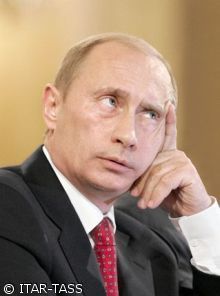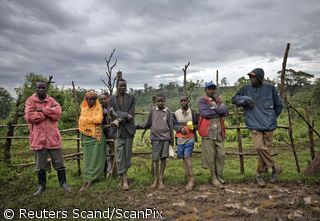In many countries, "e-government" is more political rhetoric than hard reality
Published:
9 May 2004 y., Sunday
In many countries, "e-government" is more political rhetoric than hard reality. But not in the tiny Baltic nation of Estonia, where democracy is running about as close to real-time as you can get.
Estonia's cabinet meetings are a good example. Each week, government ministers gather at a few long, grey tables in a seemingly spartan room not far from the country's parliament building. The walls of the room may be mostly bare, but the tables certainly are not. Spaced at intervals along the table tops are sleek, flat-panel monitors, one for each minister.
Underneath the desks are high-end computers, each hard-wired to the internet via broadband connections.
The day's agenda is displayed on a giant projection screen. Any cabinet member who happens to be travelling can participate in the meeting via instant messaging.
As the meeting progresses, press officers send updates to the Estonian government's website.
In the space of 30 seconds, government decisions are made available to any Estonian citizen with an internet connection.
None of this seems outrageously hi-tech here in Estonia. The cabinet's been holding meetings like this since the year 2000. The decision to open up the workings of government in this way stretch back to 1992, when Estonia achieved independence.
Šaltinis:
BBC News
Copying, publishing, announcing any information from the News.lt portal without written permission of News.lt editorial office is prohibited.
The most popular articles
 Preparations for the traditional Mexican Day of the Dead get underway in Mexico City as residents erect alters and bake bread for the deceased.
more »
Preparations for the traditional Mexican Day of the Dead get underway in Mexico City as residents erect alters and bake bread for the deceased.
more »
 In three resolutions adopted in Strasbourg on Thursday, the European Parliament restates its solidarity with O. Orlov, a member of the Russian human rights organization Memorial and winner of the 2009 EP Sakharov Prize, who is now facing trial, denounces the imprisonment of Cambodian opposition leader S. Rainsy and calls on Zimbabwe's President R. Mugabe to put an end to the threat of mass forced evictions.
more »
In three resolutions adopted in Strasbourg on Thursday, the European Parliament restates its solidarity with O. Orlov, a member of the Russian human rights organization Memorial and winner of the 2009 EP Sakharov Prize, who is now facing trial, denounces the imprisonment of Cambodian opposition leader S. Rainsy and calls on Zimbabwe's President R. Mugabe to put an end to the threat of mass forced evictions.
more »
 Marrying diligent driver behaviour, quality road infrastructure and sound vehicles for safer roads across Europe.
more »
Marrying diligent driver behaviour, quality road infrastructure and sound vehicles for safer roads across Europe.
more »
 A group of journalism students in Moscow pose semi-naked for a steamy calendar wishing Russia's prime minister a happy birthday.
more »
A group of journalism students in Moscow pose semi-naked for a steamy calendar wishing Russia's prime minister a happy birthday.
more »
 In the EU27 in 2008, 20% of women and 32% of men aged 25 to 34 lived with at least one of their parents.
more »
In the EU27 in 2008, 20% of women and 32% of men aged 25 to 34 lived with at least one of their parents.
more »
 “Vertical” health funds targeting specific diseases such as AIDS, malaria or TB have achieved some success, but only at the cost of draining resources from basic “horizontal” health infrastructure such as clinics.
more »
“Vertical” health funds targeting specific diseases such as AIDS, malaria or TB have achieved some success, but only at the cost of draining resources from basic “horizontal” health infrastructure such as clinics.
more »
 This autumn, the 2010 European Job Days give jobseekers a chance to meet employers from all over Europe, and find out about working in other EU countries through seminars and workshops.
more »
This autumn, the 2010 European Job Days give jobseekers a chance to meet employers from all over Europe, and find out about working in other EU countries through seminars and workshops.
more »
 During his visit to New York, on 27 September at the City University of New York, Lithuania’s Minister of Foreign Affairs A. Ažubalis, opened a photography exhibition dedicated to the Lithuanian Jewish cultural heritage and conferred an award of Lithuania’s Ministry of Foreign Affairs on former Executive Director of the YIVO Institute for Jewish Research.
more »
During his visit to New York, on 27 September at the City University of New York, Lithuania’s Minister of Foreign Affairs A. Ažubalis, opened a photography exhibition dedicated to the Lithuanian Jewish cultural heritage and conferred an award of Lithuania’s Ministry of Foreign Affairs on former Executive Director of the YIVO Institute for Jewish Research.
more »
 The 26th of September marks the European Day of Languages. Perhaps the Knights of the Order of St John in the Middle Ages prided themselves about the fact that they had eight “langues” but Parliament does better with its daily “Headlines” on its website in 22 languages.
more »
The 26th of September marks the European Day of Languages. Perhaps the Knights of the Order of St John in the Middle Ages prided themselves about the fact that they had eight “langues” but Parliament does better with its daily “Headlines” on its website in 22 languages.
more »
 A proposed new plan focuses on closing the pay gap and opening up company boardrooms to more women. Tackling domestic violence is also a top priority.
more »
A proposed new plan focuses on closing the pay gap and opening up company boardrooms to more women. Tackling domestic violence is also a top priority.
more »